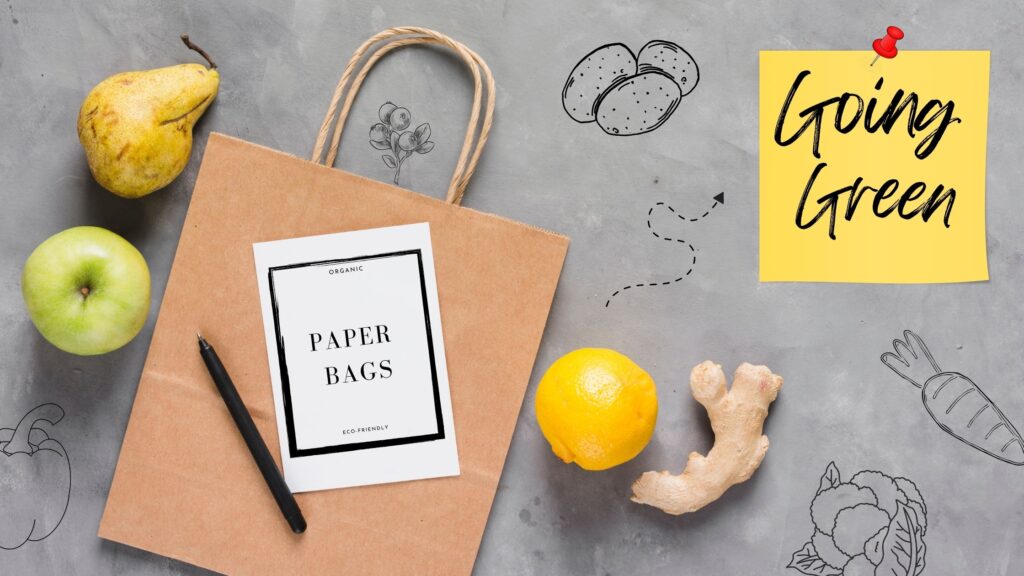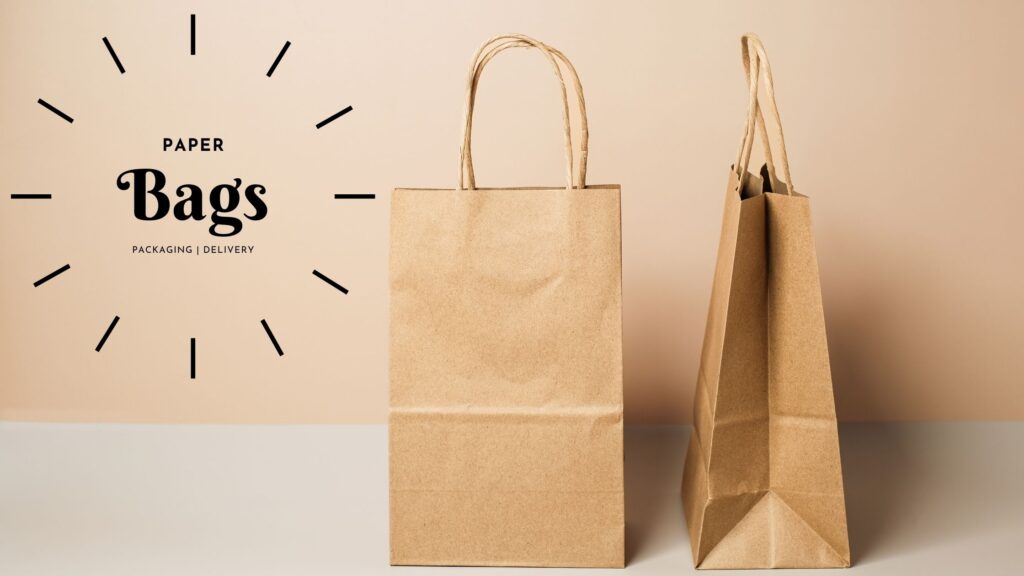In today’s world, where sustainability and eco-conscious choices are on everyone’s mind, paper bags and tissue paper have become practical and environmentally friendly alternatives to plastic.
The paper bag market in India is booming, reaching an estimated value of INR 6391.5 Crores in 2023. Projections suggest this market will grow at a CAGR of 13.65%, reaching INR 8285 Crores by 2030.
This surge reflects an increasing shift toward sustainable packaging, as both consumers and businesses opt for biodegradable, recyclable options.
Some of the most important queries in the people’s minds regarding paper bags include :
- Are paper bags cheaper than plastic?
- What are paper bags made of?
- Are paper bags zero-waste?
This guide to paper bags and tissue paper highlights their practicality, eco-friendliness, and versatility, offering insights into why they’re becoming essential in sustainable practices.
Whether you’re looking for the best packaging options for your business or a reliable bag for daily use, paper bags and tissue paper offer a responsible, convenient solution that supports a greener planet.
Why Choose Paper Bags?
Paper bags are made from wood pulp or recycled paper fibers, making them biodegradable and compostable. Unlike plastic, they can be recycled and are easier to break down when discarded, minimizing their impact on the environment.
They are primarily made from paper pulp, pressed and cut into sheets. This raw material is usually sourced from trees or recycled fibers, making them compostable and eco-friendly.
Paper bags don’t contain harmful chemicals, making them safe for food items. Additionally, their insulating properties help keep food at the right temperature longer.
People love paper bags for their versatility. Available in various colors, sizes, and designs, they’re suitable for everything from gift packaging to carrying groceries. With a bit of care, paper bags can be reused several times.
While paper bags take up more space in landfills, they are often recycled at higher rates than plastic bags. Composting them in the right conditions can also contribute to zero-waste efforts.

The Benefits of Tissue Paper
Beyond paper bags, tissue paper has numerous applications, from art projects to practical uses in daily life.
Biodegradable and Recyclable: Tissue paper is typically biodegradable and can be recycled, though it’s crucial to dispose of it properly.
Versatile Uses: It’s perfect for gift wrapping, cushioning fragile items, and even as a craft material for origami or decoration. Some types of tissue paper are safe for microwave use, while others may be used as a simple filter.
Convenience for Personal Care: Tissue paper is also widely used for facial care, in cars for convenience, and even in hygienic packaging.
Paper Bags vs. Plastic Bags: Which is Better?
The debate between paper and plastic bags is ongoing. Plastic bags are cheaper and less energy-intensive to produce, while paper bags are preferred for their biodegradability and recyclability.
Plastic bags are typically cheaper due to lower production costs and the use of petroleum-based materials. However, paper bags are a long-term investment in environmental health.
Paper bags generally offer a more sustainable choice as they can be composted and recycled more efficiently, helping reduce the burden on landfills.

Choosing The Perfect Paper Bags
Choosing the right paper bag is essential for both functionality and sustainability. Paper bags come in various sizes and designs, making them suitable for shopping, food packaging, food delivery and gifting.
One key aspect to consider is functionality.
For heavier items, bags with sturdy handles like twisted rope handles are ideal, especially for bike deliveries. For food packaging, compartmentalized options ensure items stay secure and organized.
Eco-friendly attributes are another important consideration.
Look for bags made from 100% recycled materials and those with certifications confirming they are compostable and biodegradable – this not only supports the environment but also appeals to eco-conscious consumers.
Lastly, while paper bags can be more expensive due to higher production costs, they provide long-term environmental benefits, making them a worthwhile investment.
For businesses, customizable Kraft paper bags offer a unique branding opportunity. These bags, available in natural brown tones, can be printed with a brand logo, enhancing brand visibility.
The Kraft paper bags featured here by CaneCart, such as the Cake Bag or Pizza Bag, vary in dimensions to meet different needs, from standard grocery shopping to speciality packaging.
Available in sizes like 11″ x 9″ x 9″ and 13″ x 9″ x 10″, these bags are 100% recyclable and sturdy, thanks to a 120gsm thickness. They are versatile and reusable, suitable for packaging items like cakes, pizzas, fruits, chocolates, and even gifts.
Whether you need a small 7″ x 9″ x 5″ bag for delicate items or a larger 12″ x 16″ x 5″ bag for bulky groceries, each bag provides durability and eco-friendly qualities. By choosing these high-quality, customizable paper bags, businesses and consumers alike can make sustainable choices that are both practical and stylish.
The Future of Paper Bags and Tissue Paper
Paper bags and tissue paper offer a versatile, sustainable solution for both personal and business needs, making them ideal for a more eco-friendly lifestyle.
As biodegradable and recyclable products, they reduce the environmental footprint compared to plastic alternatives. Their wide range of uses, from food packaging to gift wrapping, highlights their adaptability.
Moreover, customizable options like Kraft paper bags provide businesses with branding opportunities while promoting sustainability.
While paper bags may come at a slightly higher cost, their long-term environmental benefits and contribution to zero-waste initiatives make them a worthwhile investment.
As awareness and demand grow, paper bags and tissue paper play an essential role in reducing single-use plastics and supporting responsible consumer habits, aligning convenience with a greener future.









